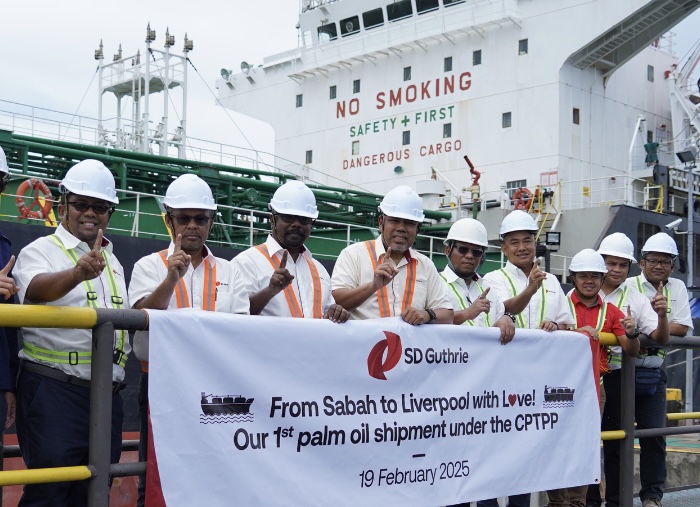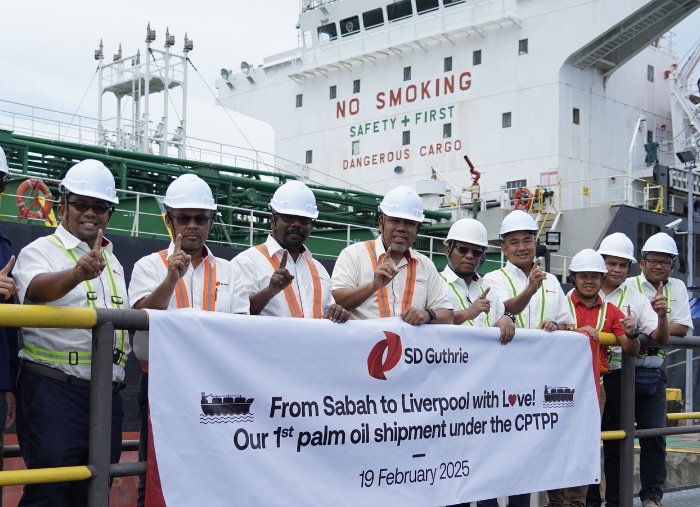Liverpool palm oil refinery SD Guthrie International sees pre-tax profits rise 16% to £23.8m despite Houthi attacks on Red Sea shipping causing its vessels to be rerouted. Tony McDonough reports

Liverpool palm oil refinery SD Guthrie International is reporting a fall in annual revenues but a rise in pre-tax profits.
SD Guthrie International, which until last year was known as Sime Darby Oils, employs more than 100 people at its base on Regent Road, close to Huskisson Dock at the Port of Liverpool.
It was first set up as New Britain Palm Oils on the site in 2010 in a £40m investment. In 2015, the facility was acquired by Malaysia-based Sime Darby Plantation for just over £1bn.
In accounts just filed on Companies House for the 12 months to December 31, 2024, SD Guthrie reported a 9.2% fall in revenues to £258.4m amid what it described as a “satisfactory result in a competitive market”.
However, it also revealed a 16% rise in pre-tax profits to £23.8m. This was despite extra costs incurred due to the major disruptions caused by Houthi terrorist attacks on shipping in the Red Sea.
Most of the palm oil refined at the plant is produced by 17,000 smallholders running plantations in Papua New Guinea. The quickest and most cost-effective way to transport the palm oil is on ships which normally come via the Red Sea.
However, Houthi missile attacks on ships in the area, in response to the conflict between Israel and Hamas in Gaza, many ships are having to take a longer route which adds delays and extra costs.
Writing in the annual report, SD Guthrie director Michael Barkhuysen said: “Currently the shipments detour around the Cape of Good Hope which increases transit time by two weeks. This is taken into account when arranging the vessels.”
Palm oil is a type of vegetable oil and is a key ingredient in countless consumer food and personal care products. They include cakes, biscuits and chocolate as well as shampoo and detergents. It is the most widely-used vegetable oil in the world.
However, over the years it has been associated with deforestation and threats to wildlife and a contributor to climate change in countries such as Borneo and Sumatra. Species such as orangutans and rare birds have been threatened by the destruction of their habitats.
In a bid to clean up its act the industry has moved towards a more sustainable model. A number of producers are now members of the Roundtable on Sustainable Palm Oil (RSPO).

This is a voluntary scheme and members commit to the lowest environmental impact possible and Mr Barkhuysen says the SD Guthrie is fully committed to this. To this end it has backed initiatives by the World Wide Fund for Nature and Chester Zoo.
READ MORE: Liverpool Airport injects £340m into city region economy
READ MORE: £150,000 appeal launched to save historic steam tug ‘The Danny’
He explained: “SD Guthrie International Liverpool Refinery takes pride in sourcing a fully RSPO circulated supply chain fully traceable to the plantation.
“The traceability of our global supply chain and responsible sourcing is a key driver to support the industry to increase sustainable palm oil production.
“As we move forward, we remain dedicated to proactively identifying opportunities for improvement and minimising environmental footprint in collaboration with the local community.”
The post Liverpool palm oil plant sees profits rise 16% to £23.8m appeared first on Liverpool Business News.



